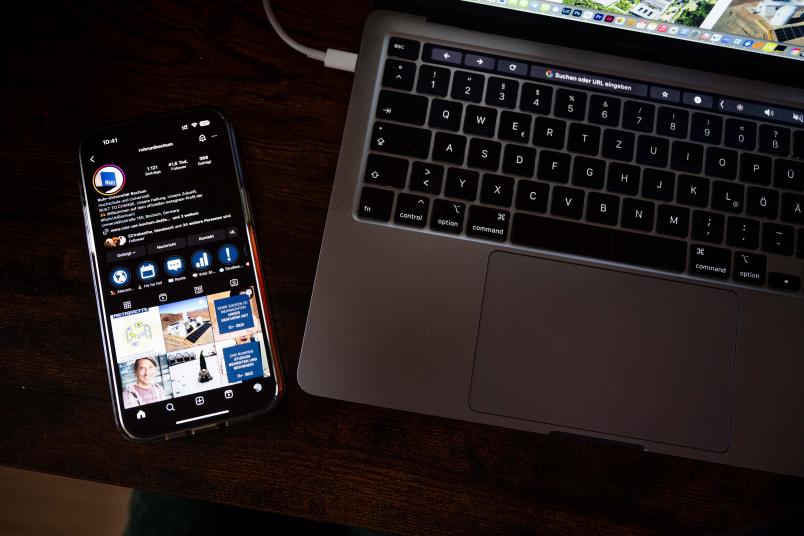
Psychology Less social media makes you happier and more efficient at work
Are you feeling permanently stressed and overworked? It could be due to your social media consumption. Reducing it by as little as 30 minutes a day makes a difference.
If you feel overworked and stressed, you’ll be less committed to your job and perform less well. Many companies are aware of this problem and, therefore, spend money on professionals to look after the mental health of their employees. And yet there’s a much simpler and more cost-effective way to increase satisfaction and efficiency: In a one-week study, just 30 minutes less social media use per day improved the mental health, job satisfaction and commitment of the participants. Associate Professor Julia Brailovskaia and her team from the Mental Health Research and Treatment Center at Ruhr University Bochum, Germany, and the German Center for Mental Health published their findings in the journal Behaviour & Information Technology on December 8, 2023.
Positive emotions that are lacking in real life
Social media have become an integral part of many people’s lives, not just the younger generation. A number of studies have explored the effects of intensive social media use: Some have shown that engaging with social media is a mood booster, others that it has a negative impact on mental health and causes users to fear missing out on something important happening in their network when they aren’t online – a phenomenon referred to as FoMO (acronym of Fear of Missing Out).
“We suspect that people tend to use social networks to generate positive emotions that they’re missing in their everyday working lives, especially when they are feeling overworked,” explains Julia Brailovskaia. “In addition, some platforms such as LinkedIn also offer the opportunity to look for new jobs if you’re unhappy with your current role.” In the short-term, escaping from reality into the world of social networks may indeed improve your mood; but in the long-term, it can lead to addictive behavior that has the opposite effect.
Effects evident after one week
The team launched an experiment to explore these correlations. A total of 166 people took part, all of whom worked either part-time or full-time in a range of sectors and spent at least 35 minutes a day on non-work-related social media use. Participants were randomly assigned to one of two groups. One group didn’t change their social media habits. The other group reduced the time spent on social networks by 30 minutes a day for seven days. The participants completed various questionnaires online before the start of the experiment, the day after it began and one week later, providing information about their workload, job satisfaction, commitment, mental health, stress levels, FoMO and behaviors indicating addictive social media use.
“Even after this short period of time, we found that the group that spent 30 minutes less a day on social media significantly improved their job satisfaction and mental health,” points out Julia Brailovskaia. “The participants in this group felt less overworked and were more committed on the job than the control group.” Their sense of FoMO decreased likewise. The effects lasted for at least a week after the end of the experiment and even increased in some cases during this time. The participants who’d reduced their daily social media use voluntarily continued to do so even after a week.
More time to do a good job and for colleagues
The researchers assume that, by reducing their social media use, the participants had more time to do their job, which meant they felt less overworked, and also suffered less from divided attention. “Our brains can’t cope well with constant distraction from a task,” explains Julia Brailovskaia. “People who frequently stop what they’re doing in order to catch up on their social media feed find it more difficult to focus on their work and they achieve poorer results.” In addition, time spent on social media may prevent people from interacting with their colleagues in real life, which can lead to alienation. Reducing time spent on social media could reduce this effect.
The results of the study are in line with previous research done by the group, which showed that reducing daily consumption by as little as 20 to 30 minutes reduced depressive symptoms and improved mental health. “Reducing the amount of time spent on social media each day could be a useful addition to business coaching training, mental health programs and psychotherapeutic interventions,” concludes Julia Brailovskaia.